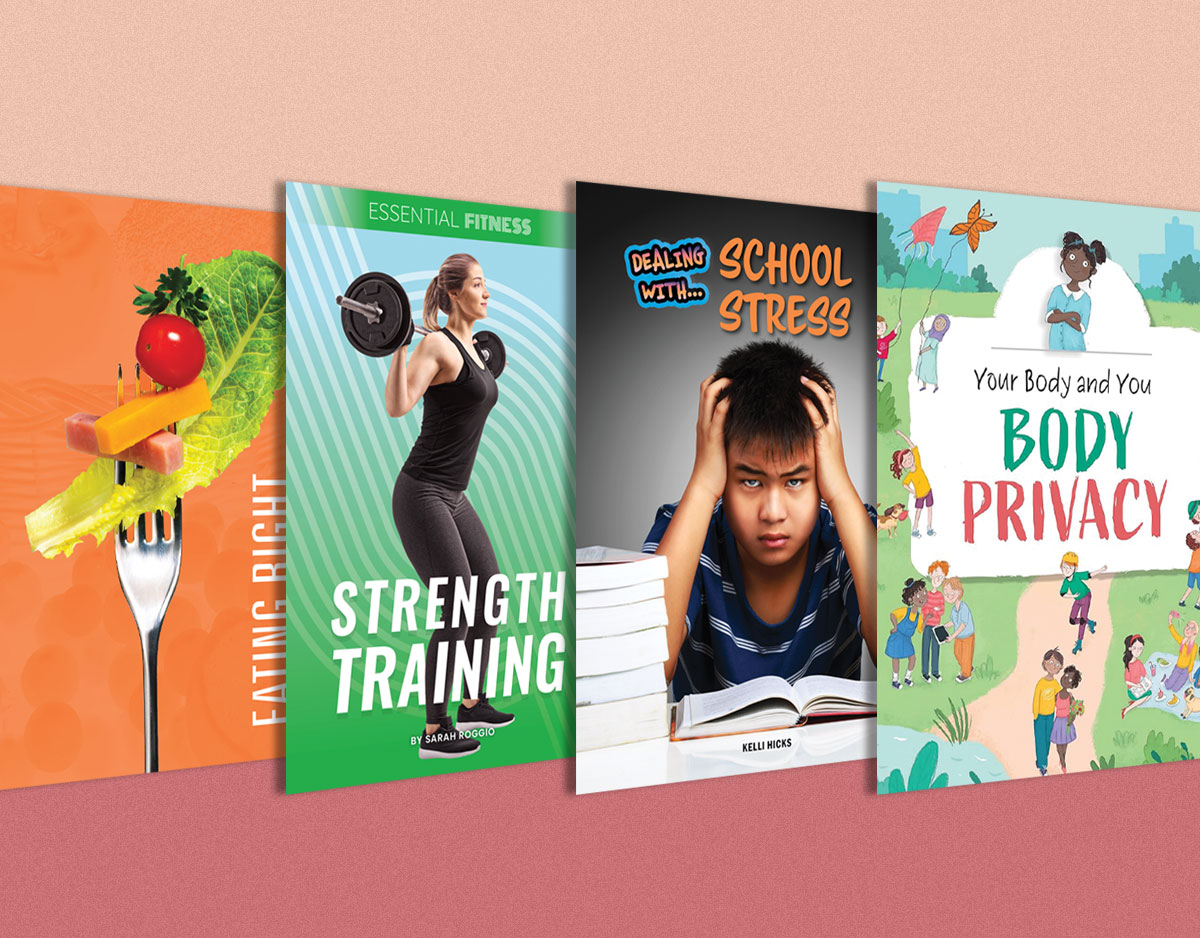Loud and Clear: A Reflection on Teaching SPEAK by Laurie Halse Anderson in the Classroom (a guest post by author Eric Devine)
My classes discuss the novel in four parts, after each of the marking periods. By the end, they understand the symbolism with the seasons and within Melinda’s artwork. They see the root of Melinda’s chapped lips, the strained relationships within the story, and, of course, her inability to speak about what has occurred.
ADVERTISEMENT
ADVERTISEMENT
During the discussion after the class had finished the novel, I kept hearing the word responsibility. Now, I had split the class into multiple groups, and it was buzzing through all of them, so I stopped the discussion and said to the class that it sounded as if they were focusing on the responsibility for the rape. They agreed they were. Part of me wishes I had pushed no further, but the majority is glad I asked what I did: “If you had to assign percentages of responsibility for the rape, what would that look like? Create a pie chart for me.”
This picture is from my classroom. The four groups varied, but one point became very clear, Melinda was sharing almost equal responsibility with Andy (IT). Now, you’ll notice in the image that there are more than four pie charts. That’s because there were dissenters within groups regarding what the “group” had indicated. Therefore, there are smaller circles for each group, indicating such. The breakdown of responsibility fell into three categories: Melinda, IT, alcohol/peer-pressure/setting. The analysis of all 10 circles, indicating the percentage of responsibility for the rape, amounts to the following:
 |
| Source: Tumblr |
Until then, I will do my part to keep the dialogue going in my class, so that when the change comes, I can appreciate it, loud and clear
Filed under: #SVYALit, Eric Devine, Laurie Halse Anderson, Sexual Violence, Speak, Teen Issues
About Karen Jensen, MLS
Karen Jensen has been a Teen Services Librarian for almost 30 years. She created TLT in 2011 and is the co-editor of The Whole Library Handbook: Teen Services with Heather Booth (ALA Editions, 2014).
ADVERTISEMENT
ADVERTISEMENT
SLJ Blog Network
Top 10 Posts of 2024: #4
31 Days, 31 Lists: Best Picture Books of 2024
Taxi Ghost | Review
When Book Bans are a Form of Discrimination, What is the Path to Justice?
Jerzy Drozd Visits The Yarn
ADVERTISEMENT










This is a topic that is close to my heart; I've never been a victim, but projects like #SVYALit bring me so much hope. Blaming and shaming a rape victim is second only to actually raping her (or him), in my opinion. After all, the stigma that our society puts squarely on victim's shoulders tends to follow them for a very long time. That's why your anecdote made me tear up, Eric.You're probably right that your students developed their attitudes about blame at home, and that's why this project is so amazing. Books, especially YA books, really do impact teens in a profound way. Great post, Eric, and Good luck #SVYALit!
btw, those pie charts may haunt my dreams…
Thanks, Ashlee. This was an experience I won't ever forget, and I'm glad it's part of a much larger movement to help ones like it to cease to exist.
I teach this book as well as once a victim at age 16. I teach it at the beginning of the year though. I love the idea of switching it to spring for richer discussion. Thank you for sharing your experiences.
Thank you, Anonymous, for sharing as well.
As someone who writes New Adult romance, but also is a feminist, I'm sadly not surprised. It feels like there is a social hatred of women. The way female characters are treated by the reading audience seriously disturbs me. If a girl likes sex, she's a whore. If she's raped, she's whiny. And also a whore. Meanwhile, the romance genre is full of books of women who are obsessed with men who abuse them, bully them, and even rape them. This is considered “romance.” I know my target audience is a little older than teens, but as an author (and a former teacher/librarian), I have a moral obligation to ensure that my characters and stories are not more damaging to young people than the culture in which they live.
I feel like I didn't even make a point here, although I want to, but this is one of my biggest concerns about stories and about our culture. If we continue to fear sex, to judge and hate women for being female, and to perpetuate these ignorant ideas of rape and abuse, this is only the beginning.
Thank you for teaching the novel and for being someone willing to make a change.
Thank you for posting this! When I read this novel in college, I felt such a relief because I WAS Melinda. It was like someone had taken my life and put it into a book. So thankful for LHA for writing this novel, teachers for teaching it and speaking out against rape and those with the actual responsibility.
Sarah, I think your point was solidly made, and I know you are not the only one who feels this way. Fortunately, there seems to be a swell of awareness about such portrayals–at least in YA. Let's hope the awareness turns into action.
Thank you, Anonymous, for sharing. Unfortunately, Melinda's story is the story for so many. Anderson's classic is important and worth teaching and discussing, because she speaks for so many who can not.
Eric, such a powerful post, and I am CERTAIN your efforts did not fall upon completely closed ears. I teach SPEAK in my college developmental writing classes, and it never fails to lead to extremely difficult and uncomfortable conversations along these same lines.
More than once, I've considered removing SPEAK from my reading list, only to have a student email me or pull me aside to say how much the book and discussion meant to her or him.
One semester, an older student, returning to college after raising a family, revealed in her narrative essay (later in the semester) that she had been in Melinda's shoes 30+ years before. She said that Melinda's courage had inspired her to write about her own rape. This information was profoundly moving, but that was compounded by her request to submit a handwritten essay, because she couldn't risk anyone at home finding out what she had gone through by discovering her essay on the computer. I was the first person to whom she had revealed her secret.
The blaming of victims persists, and the shame we feel is hard to shake, but with voices such as yours, I am certain we will continue to make progress, even if only one ear at a time. Thank you for fighting the good fight for our daughters, our sons, our world.
All best, Steve
Thanks for sharing, Steve. I thoroughly understand you considering removing the novel out of discomfort. But then, there are those moments as you have had, and you know it's worth the discomfort. I look forward to reading the titles on the list because, like with Speak, I'm sure they will move the discussion forward, or in some cases, finally get it started. Thanks for your kind words.
This is a powerful post. Thank you for honestly sharing your disturbing experience so others can benefit from it.
Thanks for taking the time to read, Yvonne. I'm glad it resonated.
Great post, Eric. It's easy for a non-teacher to assume your job is always fulfilling, but after this it's evident that a lot of frustration (!) comes with the territory, too.
I am so grateful we have teachers like you who are willing to confront the difficult topics and pave new avenues in hopes to reaching our kids.
Thanks, Bethany. The job is a mixed blessing: so much opportunity, yet so much responsibility. I choose my battles, and this is one I'm more than willing to fight for.
Eric, wow! You are the kind of teacher I only hope my children will have contact with at some point in their life. I love how instead of reacting emotionally to the pie charts (which is probably what I would have done) you went and consulted and came up with the best game plan you could have.
As someone who deals with people/the public on a regular basis, and has a degree in psychology, affecting human behavior and thinking is one of the most difficult things on this planet. Changing just ONE person's mind is an achievement of epic proportions. Don't give up. If I can ease one life the aching…
Mary, thank you. It's only because I've been teaching long enough that I had a clue about how to proceed. My younger self might have lost it. You're right about changing people's minds, too. That can be part of the difficulty of teaching, not knowing if you've truly reached them.
That must've been really hard. I read Speak in eighth grade, upon borrowing it from my English teacher. It really struck me, and remains one of my favorite books to this day. The next year, I was in my school library after school and a group of upperclassmen boys were telling racist jokes, and then told a very sexist, derogatory joke against women. They all laughed and, like Melinda, at the moment, I did nothing.
This year, I've been writing about it. Melinda sorta helped me remember that I wasn't alone -or crazy- and I've always enjoyed her sarcasm, as well as her story. Here's to speaking up.
Katia, here's to speaking up, indeed. Even if we can't say what we want to in that moment, because of fear or confusion or any other paralyzing emotion, it doesn't mean we can't move forward with purpose. Which you have clearly proven. Keep using those inspiring moments in your writing. You'll reach so many more than those boys ever will. Thanks for reading and for commenting.
What a professional way to manage this situation, Eric. I'm not sure I would have had the foresight to do what you did. And you may have triggered a spark of awareness in some students that will change their view of “responsibility” in the future.
I know that you are disappointed, but please do not feel like a failure. I think that maybe, even though they did not act like, that some of those boys heard you and the school's social worker. In my experience, many high school boys and girls will joke around and say things that they don't really mean. But, even if they did, maybe you did change the mind of a few students. And those few students count.
Thanks, C. I did what I could do, knowing full well the support system within my school. They certainly share some of the credit for the effort, and I know how lucky I am to be in the district I am.
It's a good point rmills. I know so many teens who “put up the show” for their friends, but take the message to heart. Let's hope they were among the few, because you're right, let's not forget about those who were picking u p the message. Thanks.